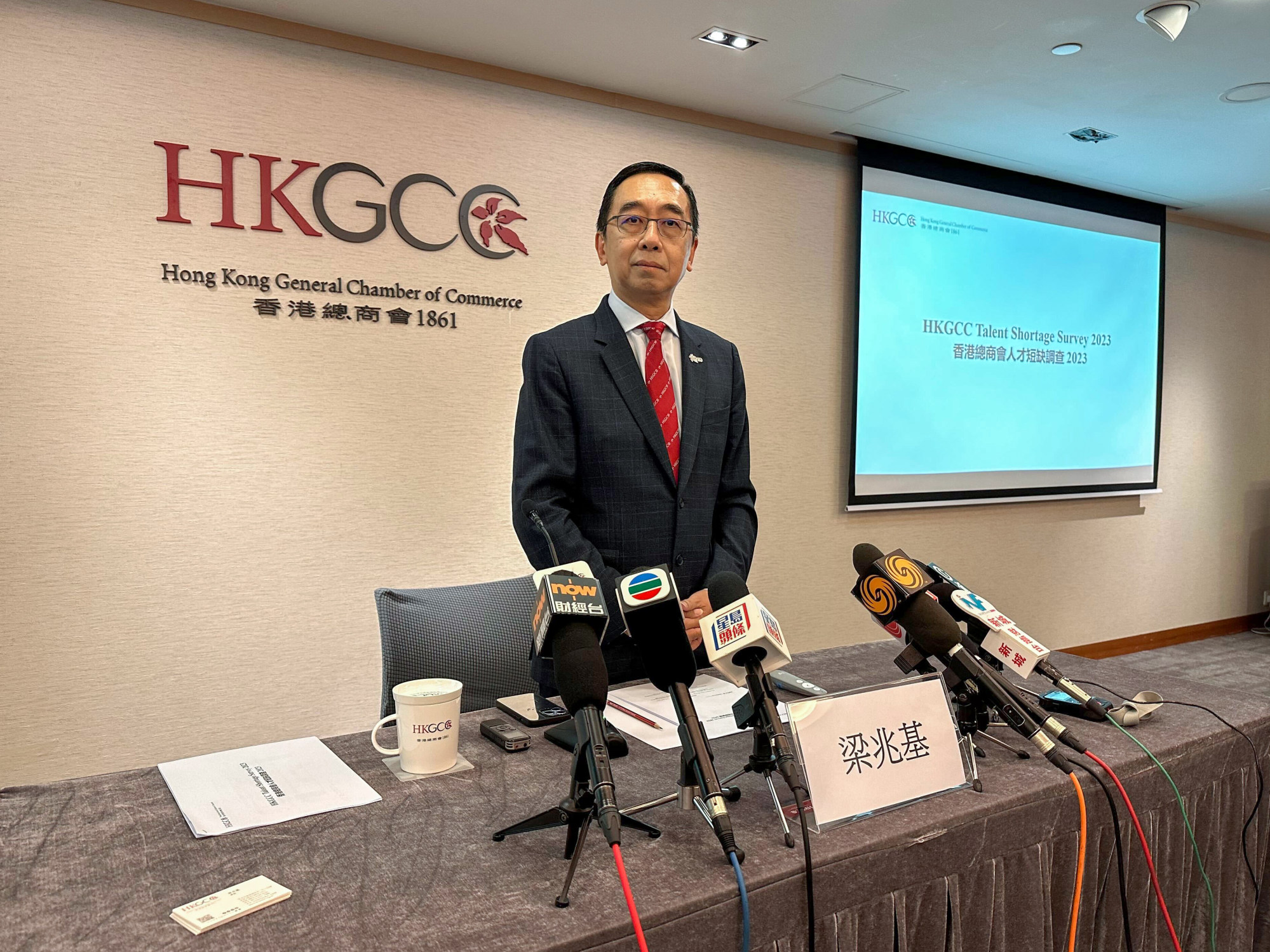
3 in 4 Hong Kong companies struggling with talent shortage, chamber survey finds
- Hong Kong General Chamber of Commerce poll also finds 61 per cent of companies reported problem has lasted for between one and three years
- Chamber chief executive George Leung says emigration key reason for labour crunch
Nearly three in four Hong Kong companies have been struggling with a shortage of labour, with a majority saying the problem has lasted for at least a year, a survey by one of the city’s largest business chambers has found.
The Hong Kong General Chamber of Commerce polled 196 member companies in April and found 74 per cent were wrestling with a shortage of talent, findings released on Tuesday showed.
Sixty-one per cent said the problem had lasted for one to three years, while 22 per cent reported the shortage had persisted for longer.

Outgoing chamber chief executive George Leung Siu-kay said emigration was a key reason for the labour crunch, although he also noted many employees were seeking a higher salary as competition increased, creating a “vicious cycle”.
“The pursuit of higher salaries is only a derivative reason for manpower shortages as companies are willing to offer higher pay to retain staff. And we see emigration shows no signs of easing,” Leung said.
“The authorities need to figure out how to solve the shortages as increasing wages and competition to retain employees will only cause a vicious cycle in the labour market and affect productivity. Small businesses and social enterprises with limited financial resources will be hit the hardest.”
Hong Kong has suffered a brain drain in recent years, losing 210,000 workers between early 2019 and the end of 2022. Statistics showed another 94,100 people left the city last year.
The government responded by launching the Top Talent Pass Scheme last December, which offered a new two-year visa to those who earned at least HK$2.5 million (US$318,775) in the previous year and graduates of the world’s top 100 universities with at least three years of working experience in the last five years.
A fifth of all respondents had turned to different government talent admission schemes, but more than half of the total said the job categories covered were not relevant to their businesses, which Leung said created a mismatch in needs.
“Take the Top Talent Pass Scheme as an example. It aims to attract more high-end individuals overseas to Hong Kong, which is a good thing, but the biggest shortfall in talent now is for junior-level management,” he said.
“The scheme cannot address the urgent needs to refill the outflow.”
Leung also noted that the city still needed to recruit at least 20,000 airport ground staff.
“The current ground staff number is just 73 per cent of the pre-pandemic levels,” he said. “The manpower shortage poses a huge impact to international flights, resulting in disruptions to economic activities while Hong Kong tries to return to normality.”
Meanwhile, the chamber has revised its full-year economic growth forecast for Hong Kong, raising it from 3.8 per cent for 2023 to 4.2 per cent, compared with the government’s estimate of between 3.5 per cent and 5.5 per cent, with a senior official recently saying there was a high chance of edging towards the upper limit.
Leung said: “The estimate reflects the chamber’s cautious attitude towards Hong Kong’s economy.
“The growth momentum of the retail sector is expected to slow down in the near future, while the situation of exports remains weak, making it difficult for the Hong Kong economy to achieve significant growth.”
The chamber said weak global demand prompted it to revise its estimate for exports to a 2 per cent contraction from the 4.5 per cent growth it predicted at the beginning of this year.
Leung is expected to retire on July 31 and will be succeeded by Patrick Yeung Wai-tim on August 1. Yeung held senior management positions with Swire Group and Cathay Pacific Airways for 37 years.

